Welcome to CARICE
CARICE is a new centre of excellence within the faculty of Life Sciences and Medicine (FoLSM) at King’s College London.
The Centre is led by Professor Claire Steves from the School of Life Course & Population Sciences and will involve scientists and research teams from all the Schools in the Faculty working on ageing research.
Our vision
The centre mission is to centralise and focus ageing research across the Faculty of Life Sciences & Medicine to reduce the negative collective impact of the major colliding global challenges of climate change and population ageing.
The centre brings together the Faculty senior and early career researchers together with clinicians specialised in ageing to share expertise and ideas to:
- Identify specific advice and treatments to increase and maintain good health of our ageing population.
- Provide a research environment to support future grants to study how to increase resilience in the ageing population.
About the centre: CARICE's objectives
An important area in ageing research is the concept of resilience. Resilience is our ability to cope and bounce back from external or internal stressors or events that result in physical or emotional stress.
One of the biggest threats to health globally is our rapidly changing environment, including changes in climate, with direct and indirect effects through economic uncertainty and international insecurity. Older people are the most vulnerable.
We believe that older people can increase their biological and social resilience in the face of environmental and physical stressors thanks to scientific knowledge, innovation and understanding. Science can help older people maintain good physical and mental health for longer.
CARICE wants to understand the mechanisms that unable individuals maintain health and full functions resisting the negative impact of ageing. We also want to identify interventions and solutions to help those less advantaged.
Our core themes
The research within the institute spans four core areas or themes that cover key aspects of clinical and scientific exploration into ageing resilience and the environment. The themes allow researchers to coalesce under shared interests to better facilitate transdisciplinary investigation.
|
|
Theme 1: Biology of ageing resilience (Bio-AR)This theme brings together existing strengths from biological scientists across FoLSM and clinical academics. All working on ageing, from cells, to tissue samples and organoid cell cultures to whole organisms with cohorts. By bringing them together with clinical teams we will create a roadmap to accelerate translation to human settings. |
|
|
Theme 2: Lifestyles and ageing resilience (Life-AR)This theme links King’s strengths in ageing from nutrition, exercise, physiology, behaviour change modification, rehabilitation, social science, with health economics and MedTech to find new insight. |
|
|
Theme 3: Environmental stressors and ageing resilience (ES-AR)This theme will investigate how local and socio-economic environments in the UK and globally can be modified to promote ageing resilience as environmental stressors change and intensify. |
|
|
Theme 4: Innovations to promote ageing resilience (Innovate-AR)In the clinical sphere, as well as the development of new lab methodologies, informatics and AI-tools, to enable world-leading resilience research and novel techniques for older people to cope with clinical and social stressors. |
|
|
Our CliniciansThis page showcases the wide array of clinical researchers interested in studying resilience in an ageing population. This includes clinicians, who are actively conducting research as well as those who support and provide the research infrastructure to enable the wide array of research projects. |
Faculty in Focus - Ageing WellThe King’s vision is to make the world a better place through excellence in teaching, research and service to society. Our themed Faculty campaigns showcase different ways we are working to achieve that vision, on a local and global scale. |
|
Projects

Elucidating factors predictive of hospital associated deconditioning in hospital inpatients using AI
This project aims to investigate predictors of hospital associated deconditioning (HAD) using free-text hospital notes. HAD is a condition where patients’ physical functioning reduces during a hospital stay. This affects their ability to perform activities of daily living (ADLs), such as washing and mobilising. We plan to track patients’ ability to perform ADLs by applying Natural Language Processing and AI to free-text clinical notes. We will investigate predictors of HAD, and build predictive models. Patient and Public Engagement will aid prioritisation of predictors to investigate. We are particularly interested in common medical conditions, lifestyle factors and frailty. Team: Dr Dan Stein (LCPS), Prof Jugdeep Dhesi (LCPS), Prof Richard Dobson (IoPPN), Dr Carly Welch (LCPS)

Targeting the gut microbiome preoperatively to improve outcomes for older adults undergoing surgery: a pilot and planning study.
This project aims to optimise older adults’ resilience for undergoing surgery utilising innovative gut microbiome modulation approaches (Innovate-AR), while also collecting a wealth of data for multi-omics analyses to further understand the biological connections between gut microbiome function/composition and resilience in ageing (Bio-AR). This initial phase of the project will generate crucial pilot data and patient and participant involvement and engagement work, which, alongside the results of the remotely delivered PROMOTe trial, will be the basis of a large clinical trial funding application. The planned BIOAGE (Bio-Interventions for Optimal Ageing and Gut Ecology) Trial is a placebo controlled double blinded trial, aiming to compare gut microbiome modulation to placebo in older surgical populations. Planned data collection, case selection and trial outcomes are to be chosen, cognisant of patient and clinician burden, while generating a wealth of data to answer key research questions Team: Dr Mary Ni Lochlainn, Prof Kevin Whelan (LCPS), Prof Jugdeep Dhesi (GSTT), Prof Steve Harridge (BMS), Dr Natalie Cox (BMEIS)

Vascular resilience to raised blood pressure
High blood pressure drives stiffening of blood vessels, wich significantly increases the risk of cardiovascular events like heart attacks and affects the function of vital organs, including the heart, kidneys, and brain. Certain individuals exhibit resilience to arterial stiffening despite high blood pressure. Comparing arterial stiffness measurements with blood pressure can help identify individuals resilient and identify protective factors against blood vessel stiffening. Using the twin study design and data available from UK Biobank, we can investigate inherited and environmental factors that protect against arterial stiffness with age and develop preventative strategies against stiffening. Team: Dr Marina Cecelja (LCPS), Dr Liane S Canas (BMEIS), Prof Cathy Shanahan (CMMS), Prof Phil Chowienczyk (CMMS)

Investigating the impact of perceived loneliness in middle-aged and older adults using the TwinsUK cohort
This project will explore factors involved in the development of loneliness in middle-aged and older adults using the TwinsUK database, as research shows feeling lonely adversely affects both physical and mental health. We aim to investigate which factors are associated with perceived loneliness and whether this influences how resilience or illness develops as people age, while adjusting for genetic confounding. Results will facilitate grant applications to examine who is most at risk of elevated levels of loneliness and how tailored interventions to reduce loneliness could meet the needs of individuals or specific groups that are most at risk. LEAD: Dr Emma Godfrey, Life Course and Population Sciences (LCPS) TEAM: Dr Ruth Hacket (IoPPN), Dr Ulrike Hammerbeck (BMB), Dr Sam Norton (IMS), Dr Matthew O'Connell (LCPS), Dr Anne Stagg (GSTT), and Dr Ellen Thompson (Sussex)

Relating senescence to clinical resilience and environmental and nutritional factors
This study will collect and optimize the assay method for assessment of senescence in blood, skin and fat from the TwinsUK Cohort, focusing on twins discordant for exposures. The resulting proof-of-concept study will facilitate larger grant applications to examine the relation between tissue and immune senescence, health outcomes (frailty) and key environmental exposures which effect senescence pathways (air pollution, xenobioitcs, nutrition) Team: Cathy Shanahan (CMMS), Carly Welch (LCPS), Georgina Ellison-Hughes (BMS), Claire Steves (LCPS) CARICE
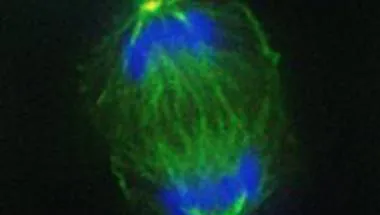
Measuring cellular senescence in relation to X Chromosome inactivation skew
This project will use identical or monozygotic twins discordant for XCI-skew and assess differences in levels of cellular senescence across different immune cell populations. This will be the first study to assess relationship between these novel ageing biomarkers. It aims to establish if future work can leverage biobanks samples based on differences between fresh vs frozen samples, whether. It will also aim to facilitate grant application on novel ageing biomarkers. Team: Kerrin Small (LCPS), Amy Roberts (LCPS), Georgina Ellison-Hughes (BMS)
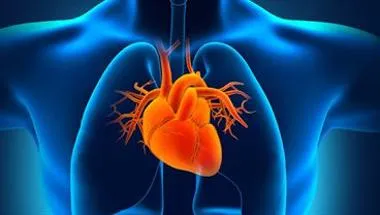
Optimisation of novel human cardiac senescent 3D ex vivo model systems
This project will develop representative multi-cellular 3D models (cardiac-organoids and cardiac organotypic tissue slices) of human cardiac ageing-senescence. The model will develop human pre-clinical platforms for testing the effectiveness of senotherapeutics and senomorphics, that can be used under future grant funding to test different delivery modes of senotherapeutics (and other drugs or gene therapy) to the heart. Cardiac slices and organoids are powerful tools to study heart function ex vivo as they recapitulate the complexity and function of the tissue while maintaining the simplicity of an isolated, controlled environment system. Team members: Georgina Ellison-Hughes (BMS), Michael Shattock (CMM)

Developing an induced senescence ageing model for studying anabolic resistance in human primary skeletal muscle cells
Cellular senescence and anabolic resistance have been implicated in the development of sarcopenia. We plan to expand our method (Francis et al. 2022) for induced cellular senescence, into a more “realistic” model of human muscle by studying differentiated and mature myotubes and to use the Deuterium Oxide (D2O) tracer method developed by our collaborators at the University of Nottingham to investigate muscle protein synthesis rates. This will determine if the anabolic resistance observed in ageing humans can be replicated in our model system, opening it up for an array of further studies. Team members: Stephen Harridge, Tom Francis, Mary Ni Lochlainn

Omics markers of planetary health diet and red meat consumption
This is a Reanalysis of existing TwinsUK omics data to assess microbiome markers of red meat consumption, and adherence to the planetary health diet to identify specific biomarkers of red meat consumption. Lead: Dr Cristina Menni (KCL), Dr Ana Rodriguez-Mateos (KCL) Team members: Dr Oliver Witard (KCL), Dr Emily Leeming (KCL)
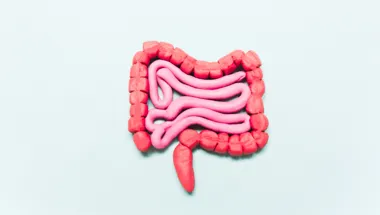
The role of exercise in preventing heat stroke and hyperthermia induced gastrointestinal damage
This is a pilot study, conducted in the climactic chamber of CHAPS, to investigate how older and younger individuals that are exercises or non-exercisers respond to heat. Findings will support a larger grant application investigating who is most vulnerable during extreme heat and whether exercise training through better regulation of body temperature and/or its potential to restore gut barrier function in less active individuals could mitigate some of the risks. Team: Steve Harridge (BMB), Ross Pollock (BMB), Josh Foster (?BMB), Claire Steves (LCPS)

Dehydration risk in older people under (future) climate change
This is a feasibility study within a local primary care database covering 1.2 M people, Lambeth DataNet. We will use the data to predict risk of dehydration and effects on health in older people, in relation to seasonal and climate variables, individual, and GP practice related factors. This will allow us to identify vulnerable individuals at risk and inform ways we can reduce acute heat-related health problems. Leads: Dr. Mariam Molokhia & Prof Mark Ashworth, Population Health Sciences, LCPS Team members: Dr Ruth Bowyer LCPS, Dr Salma Ayis LCPS, Dr Martin Chapman LCPS, Dr Daniel Schillereff SGA, Dr Josh Foster BMB

Novel data linkage between electronic health care records and Census data to quantify unmet health care need 'hotspots'
This project aims to understand health care needs by combining 2021 Census and NHS data together. 97% of everyone living in England and Wales completed the Census in March 2021, and so it gives an almost complete picture of the population. Meanwhile, NHS data contains lots of information about health, but we know that not everyone who wants health care is able to access services. We call this ‘unmet need’ for health care. Combining NHS data with Census data will help us to see ‘hotspots’ where there are people who are potentially unwell but not accessing health care. We aim to partner with the NHS South East London Integrated Care Board to understand health care needs in the area local to King’s. Leads: Dr Nathan Cheetham, School of Life Course & Population Sciences, Prof Claire Steves, School of Life Course & Population Sciences.
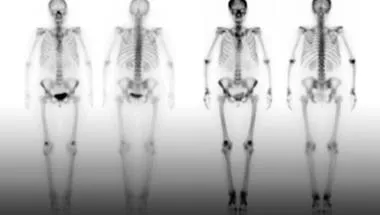
Vertebral fractures in the English health service: a national database study on the regional distribution, characteristics and management of patients with vertebral fracture
Vertebral fractures (VF) are the most common type of osteoporotic fracture and are associated with future risk of hip fracture and mortality, however 70% never reach medical attention. This project will extend initial feasibility work of 100,000 people to quantify inequities in the diagnosis and management of vertebral fractures across England with a view to inform targeted interventions for poor performing regions. Team: Matthew O'Connell (LCPS), Katie Sheehan (LCPS), Martin Gulliford (LCPS), Emma Rezel-Potts, Emma Godfrey (LCPS), Mark Ashworth (LCPS), Fionna Martin (LCPS), Fran Williams (LCPS)
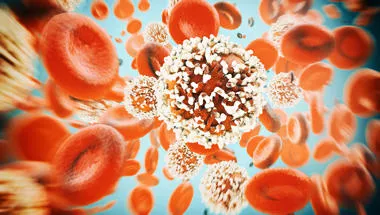
Utilising record linkage to identify resilience trajectories of older patients undergoing systemic cancer treatment Imaging project
The project will use anonymised patient records from older people undergoing treatment for cancer within Guy's and St Thomas' NHS Foundation Trust. This project will enable enhanced understanding of the effects of cancer treatment upon ageing processes, including analysis of blood biomarkers, body composition measurements (muscle and fat content on imaging), muscle strength, and physical performance. We will use advanced machine learning methods to identify factors that might be predictive against accelerated ageing effects, either alone or in combination e.g., certain medications, physical activity levels, protein intake. Leads: Dr Carly Welch, School of Life Course & Population Sciences Team members: Dr Danielle Harari, School of Basic & Medical Biosciences; Dr Michela Antonelli, School of Biomedical Engineering & Imaging Sciences
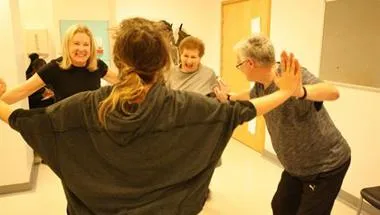
Using Digital Technology to identify Symptom exacerbations in COPD
Over 9 months we will extract data from the ZOE Health Study which includes over 100,000 individuals with Asthma/COPD who have logged symptoms data for over 1 year. Deliverable: Pilot data to show strengths and limitations of using digital apps for respiratory exacerbation monitoring for larger digital health application.
News
People from disadvantaged backgrounds have COVID-19 symptoms for longer
People from disadvantaged backgrounds are more likely to experience COVID-19 symptoms for longer, new research suggests.
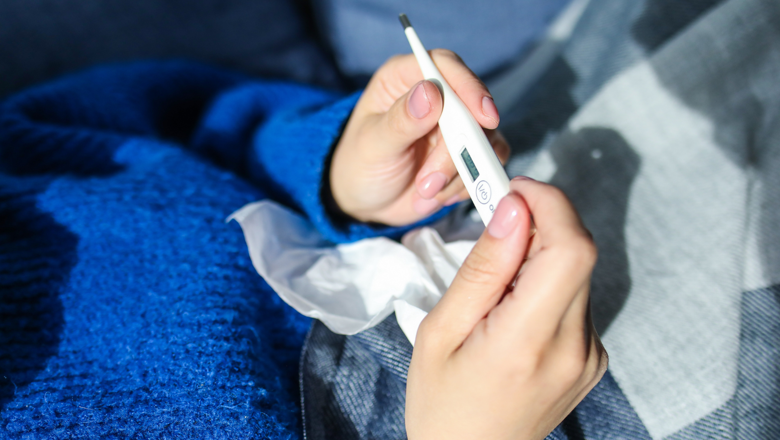
International delegation visits King's as part of UK tour focused on ageing research and care
On 20 February, a delegation of clinical professors specialising in geriatric medicine from Japan, Taiwan and Korea visited researchers and clinicians at...
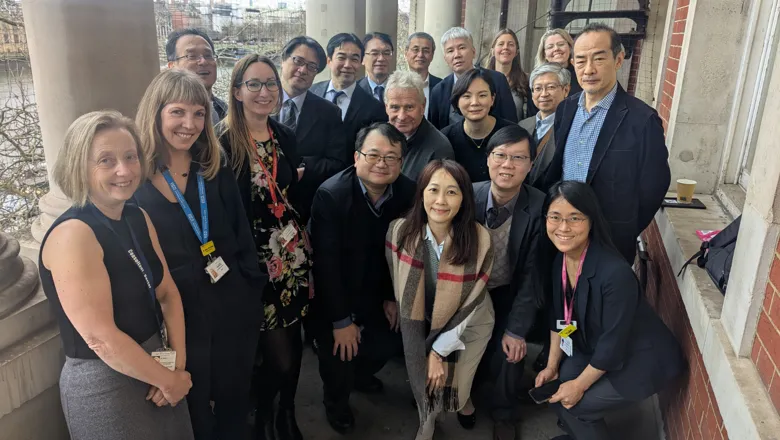
King's academics present their research at healthy ageing events in China
Researchers from King’s College London recently attended two events in China that shared insights into international strategies to promote healthy ageing and...

Researchers challenge focus on rural older adults in CMO's latest health report
New analysis challenges prevailing assumptions about the distribution of older adults in Chief Medical Officer (CMO) Chris Whitty’s latest annual report.

Daily fibre supplement improves older adults' brain function in just 12 weeks
A daily fibre supplement improved brain function in over 60s in just 12 weeks.

Events
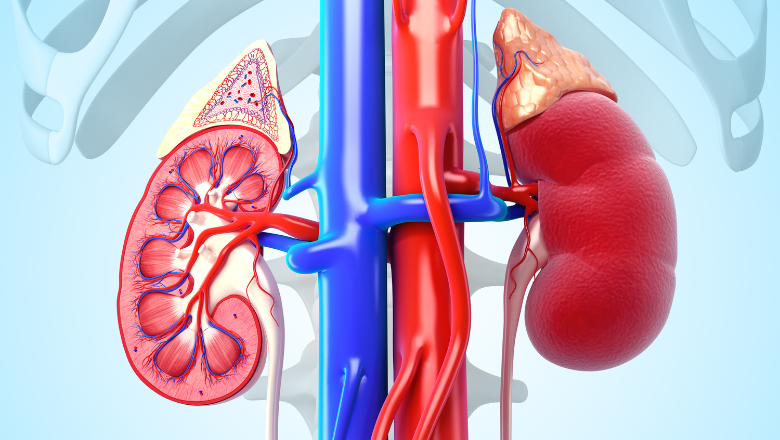
CARICE Ageing and Long-term conditions Seminars - 09 July 2025
We invite all researchers affiliated or interested in ageing resilience to attend this seminar taking place on the second Wednesday of each month at 16:00 via...

CARICE Science and Networking Conference - October 2025
The conference theme will focus on Infection, immunity and ageing resilience: from biology to public health
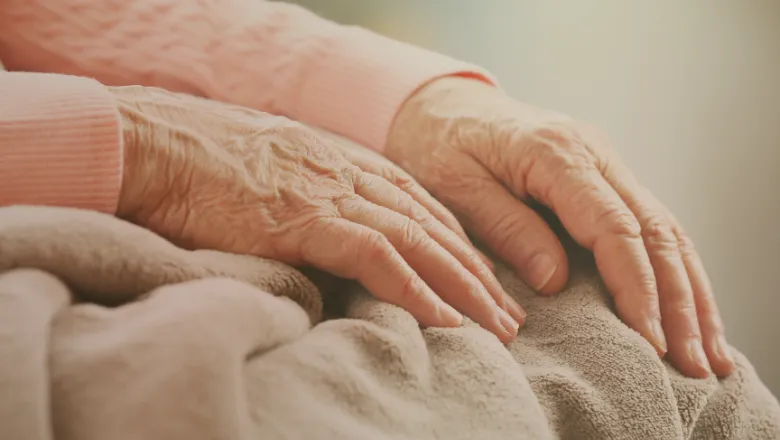
CARICE Ageing and Long-term conditions Seminars - June 2025
We invite all researchers affiliated or interested in ageing resilience to attend this seminar taking place on the second Wednesday of each month at 16:00 via...
Please note: this event has passed.

CARICE Ageing and Long-term conditions Seminars - May 2025
We invite all researchers affiliated or interested in ageing resilience to attend this seminar taking place on the second Wednesday of each month at 16:00 via...
Please note: this event has passed.

Inaugural Lectures: Professors Mariam Molokhia & Russell Hearn
Inspiring talks from two of our new professors about their work, their specialisations, and their journeys to where they are today.
Please note: this event has passed.
Our monthly seminars & our videos
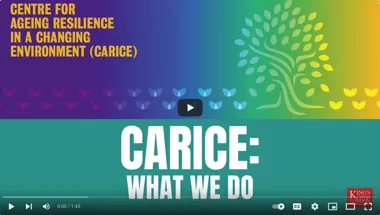
CARICE - video explaining what we do
A short video explaining what we do in the Centre for Ageing Resilience In a Changing Environment.

Highlights from the CARICE Science and Networking Conference – March 2025
Our Conference on 13 March 2025 brought scientists across disciplines to discuss novel research and foster collaborations. Please see highlights in the video linked below.
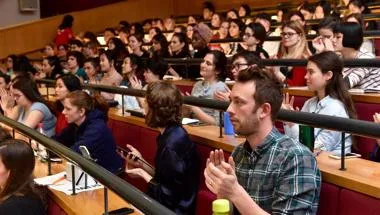
Attend our monthly seminar series: CARICE Ageing and Long-term conditions
We invite all researchers affiliated or interested in ageing resilience to attend this seminar taking place on the second Wednesday of each month at 16:00 via teams. The seminars bring together speakers from across disciplines to share and discuss the latest findings and developments in the field. Each seminar will introduce two presenters who will cover topics from scientific and clinical perspectives relating to ageing. As we face the dual challenge of an ageing population and a changing environment, we believe that coming together will allow us to generate knowledge and innovation to help all of us live healthy and fulfilling lives for longer.
Projects

Elucidating factors predictive of hospital associated deconditioning in hospital inpatients using AI
This project aims to investigate predictors of hospital associated deconditioning (HAD) using free-text hospital notes. HAD is a condition where patients’ physical functioning reduces during a hospital stay. This affects their ability to perform activities of daily living (ADLs), such as washing and mobilising. We plan to track patients’ ability to perform ADLs by applying Natural Language Processing and AI to free-text clinical notes. We will investigate predictors of HAD, and build predictive models. Patient and Public Engagement will aid prioritisation of predictors to investigate. We are particularly interested in common medical conditions, lifestyle factors and frailty. Team: Dr Dan Stein (LCPS), Prof Jugdeep Dhesi (LCPS), Prof Richard Dobson (IoPPN), Dr Carly Welch (LCPS)

Targeting the gut microbiome preoperatively to improve outcomes for older adults undergoing surgery: a pilot and planning study.
This project aims to optimise older adults’ resilience for undergoing surgery utilising innovative gut microbiome modulation approaches (Innovate-AR), while also collecting a wealth of data for multi-omics analyses to further understand the biological connections between gut microbiome function/composition and resilience in ageing (Bio-AR). This initial phase of the project will generate crucial pilot data and patient and participant involvement and engagement work, which, alongside the results of the remotely delivered PROMOTe trial, will be the basis of a large clinical trial funding application. The planned BIOAGE (Bio-Interventions for Optimal Ageing and Gut Ecology) Trial is a placebo controlled double blinded trial, aiming to compare gut microbiome modulation to placebo in older surgical populations. Planned data collection, case selection and trial outcomes are to be chosen, cognisant of patient and clinician burden, while generating a wealth of data to answer key research questions Team: Dr Mary Ni Lochlainn, Prof Kevin Whelan (LCPS), Prof Jugdeep Dhesi (GSTT), Prof Steve Harridge (BMS), Dr Natalie Cox (BMEIS)

Vascular resilience to raised blood pressure
High blood pressure drives stiffening of blood vessels, wich significantly increases the risk of cardiovascular events like heart attacks and affects the function of vital organs, including the heart, kidneys, and brain. Certain individuals exhibit resilience to arterial stiffening despite high blood pressure. Comparing arterial stiffness measurements with blood pressure can help identify individuals resilient and identify protective factors against blood vessel stiffening. Using the twin study design and data available from UK Biobank, we can investigate inherited and environmental factors that protect against arterial stiffness with age and develop preventative strategies against stiffening. Team: Dr Marina Cecelja (LCPS), Dr Liane S Canas (BMEIS), Prof Cathy Shanahan (CMMS), Prof Phil Chowienczyk (CMMS)

Investigating the impact of perceived loneliness in middle-aged and older adults using the TwinsUK cohort
This project will explore factors involved in the development of loneliness in middle-aged and older adults using the TwinsUK database, as research shows feeling lonely adversely affects both physical and mental health. We aim to investigate which factors are associated with perceived loneliness and whether this influences how resilience or illness develops as people age, while adjusting for genetic confounding. Results will facilitate grant applications to examine who is most at risk of elevated levels of loneliness and how tailored interventions to reduce loneliness could meet the needs of individuals or specific groups that are most at risk. LEAD: Dr Emma Godfrey, Life Course and Population Sciences (LCPS) TEAM: Dr Ruth Hacket (IoPPN), Dr Ulrike Hammerbeck (BMB), Dr Sam Norton (IMS), Dr Matthew O'Connell (LCPS), Dr Anne Stagg (GSTT), and Dr Ellen Thompson (Sussex)

Relating senescence to clinical resilience and environmental and nutritional factors
This study will collect and optimize the assay method for assessment of senescence in blood, skin and fat from the TwinsUK Cohort, focusing on twins discordant for exposures. The resulting proof-of-concept study will facilitate larger grant applications to examine the relation between tissue and immune senescence, health outcomes (frailty) and key environmental exposures which effect senescence pathways (air pollution, xenobioitcs, nutrition) Team: Cathy Shanahan (CMMS), Carly Welch (LCPS), Georgina Ellison-Hughes (BMS), Claire Steves (LCPS) CARICE

Measuring cellular senescence in relation to X Chromosome inactivation skew
This project will use identical or monozygotic twins discordant for XCI-skew and assess differences in levels of cellular senescence across different immune cell populations. This will be the first study to assess relationship between these novel ageing biomarkers. It aims to establish if future work can leverage biobanks samples based on differences between fresh vs frozen samples, whether. It will also aim to facilitate grant application on novel ageing biomarkers. Team: Kerrin Small (LCPS), Amy Roberts (LCPS), Georgina Ellison-Hughes (BMS)

Optimisation of novel human cardiac senescent 3D ex vivo model systems
This project will develop representative multi-cellular 3D models (cardiac-organoids and cardiac organotypic tissue slices) of human cardiac ageing-senescence. The model will develop human pre-clinical platforms for testing the effectiveness of senotherapeutics and senomorphics, that can be used under future grant funding to test different delivery modes of senotherapeutics (and other drugs or gene therapy) to the heart. Cardiac slices and organoids are powerful tools to study heart function ex vivo as they recapitulate the complexity and function of the tissue while maintaining the simplicity of an isolated, controlled environment system. Team members: Georgina Ellison-Hughes (BMS), Michael Shattock (CMM)

Developing an induced senescence ageing model for studying anabolic resistance in human primary skeletal muscle cells
Cellular senescence and anabolic resistance have been implicated in the development of sarcopenia. We plan to expand our method (Francis et al. 2022) for induced cellular senescence, into a more “realistic” model of human muscle by studying differentiated and mature myotubes and to use the Deuterium Oxide (D2O) tracer method developed by our collaborators at the University of Nottingham to investigate muscle protein synthesis rates. This will determine if the anabolic resistance observed in ageing humans can be replicated in our model system, opening it up for an array of further studies. Team members: Stephen Harridge, Tom Francis, Mary Ni Lochlainn

Omics markers of planetary health diet and red meat consumption
This is a Reanalysis of existing TwinsUK omics data to assess microbiome markers of red meat consumption, and adherence to the planetary health diet to identify specific biomarkers of red meat consumption. Lead: Dr Cristina Menni (KCL), Dr Ana Rodriguez-Mateos (KCL) Team members: Dr Oliver Witard (KCL), Dr Emily Leeming (KCL)

The role of exercise in preventing heat stroke and hyperthermia induced gastrointestinal damage
This is a pilot study, conducted in the climactic chamber of CHAPS, to investigate how older and younger individuals that are exercises or non-exercisers respond to heat. Findings will support a larger grant application investigating who is most vulnerable during extreme heat and whether exercise training through better regulation of body temperature and/or its potential to restore gut barrier function in less active individuals could mitigate some of the risks. Team: Steve Harridge (BMB), Ross Pollock (BMB), Josh Foster (?BMB), Claire Steves (LCPS)

Dehydration risk in older people under (future) climate change
This is a feasibility study within a local primary care database covering 1.2 M people, Lambeth DataNet. We will use the data to predict risk of dehydration and effects on health in older people, in relation to seasonal and climate variables, individual, and GP practice related factors. This will allow us to identify vulnerable individuals at risk and inform ways we can reduce acute heat-related health problems. Leads: Dr. Mariam Molokhia & Prof Mark Ashworth, Population Health Sciences, LCPS Team members: Dr Ruth Bowyer LCPS, Dr Salma Ayis LCPS, Dr Martin Chapman LCPS, Dr Daniel Schillereff SGA, Dr Josh Foster BMB

Novel data linkage between electronic health care records and Census data to quantify unmet health care need 'hotspots'
This project aims to understand health care needs by combining 2021 Census and NHS data together. 97% of everyone living in England and Wales completed the Census in March 2021, and so it gives an almost complete picture of the population. Meanwhile, NHS data contains lots of information about health, but we know that not everyone who wants health care is able to access services. We call this ‘unmet need’ for health care. Combining NHS data with Census data will help us to see ‘hotspots’ where there are people who are potentially unwell but not accessing health care. We aim to partner with the NHS South East London Integrated Care Board to understand health care needs in the area local to King’s. Leads: Dr Nathan Cheetham, School of Life Course & Population Sciences, Prof Claire Steves, School of Life Course & Population Sciences.

Vertebral fractures in the English health service: a national database study on the regional distribution, characteristics and management of patients with vertebral fracture
Vertebral fractures (VF) are the most common type of osteoporotic fracture and are associated with future risk of hip fracture and mortality, however 70% never reach medical attention. This project will extend initial feasibility work of 100,000 people to quantify inequities in the diagnosis and management of vertebral fractures across England with a view to inform targeted interventions for poor performing regions. Team: Matthew O'Connell (LCPS), Katie Sheehan (LCPS), Martin Gulliford (LCPS), Emma Rezel-Potts, Emma Godfrey (LCPS), Mark Ashworth (LCPS), Fionna Martin (LCPS), Fran Williams (LCPS)

Utilising record linkage to identify resilience trajectories of older patients undergoing systemic cancer treatment Imaging project
The project will use anonymised patient records from older people undergoing treatment for cancer within Guy's and St Thomas' NHS Foundation Trust. This project will enable enhanced understanding of the effects of cancer treatment upon ageing processes, including analysis of blood biomarkers, body composition measurements (muscle and fat content on imaging), muscle strength, and physical performance. We will use advanced machine learning methods to identify factors that might be predictive against accelerated ageing effects, either alone or in combination e.g., certain medications, physical activity levels, protein intake. Leads: Dr Carly Welch, School of Life Course & Population Sciences Team members: Dr Danielle Harari, School of Basic & Medical Biosciences; Dr Michela Antonelli, School of Biomedical Engineering & Imaging Sciences

Using Digital Technology to identify Symptom exacerbations in COPD
Over 9 months we will extract data from the ZOE Health Study which includes over 100,000 individuals with Asthma/COPD who have logged symptoms data for over 1 year. Deliverable: Pilot data to show strengths and limitations of using digital apps for respiratory exacerbation monitoring for larger digital health application.
News
People from disadvantaged backgrounds have COVID-19 symptoms for longer
People from disadvantaged backgrounds are more likely to experience COVID-19 symptoms for longer, new research suggests.

International delegation visits King's as part of UK tour focused on ageing research and care
On 20 February, a delegation of clinical professors specialising in geriatric medicine from Japan, Taiwan and Korea visited researchers and clinicians at...

King's academics present their research at healthy ageing events in China
Researchers from King’s College London recently attended two events in China that shared insights into international strategies to promote healthy ageing and...

Researchers challenge focus on rural older adults in CMO's latest health report
New analysis challenges prevailing assumptions about the distribution of older adults in Chief Medical Officer (CMO) Chris Whitty’s latest annual report.

Daily fibre supplement improves older adults' brain function in just 12 weeks
A daily fibre supplement improved brain function in over 60s in just 12 weeks.

Events

CARICE Ageing and Long-term conditions Seminars - 09 July 2025
We invite all researchers affiliated or interested in ageing resilience to attend this seminar taking place on the second Wednesday of each month at 16:00 via...

CARICE Science and Networking Conference - October 2025
The conference theme will focus on Infection, immunity and ageing resilience: from biology to public health

CARICE Ageing and Long-term conditions Seminars - June 2025
We invite all researchers affiliated or interested in ageing resilience to attend this seminar taking place on the second Wednesday of each month at 16:00 via...
Please note: this event has passed.

CARICE Ageing and Long-term conditions Seminars - May 2025
We invite all researchers affiliated or interested in ageing resilience to attend this seminar taking place on the second Wednesday of each month at 16:00 via...
Please note: this event has passed.

Inaugural Lectures: Professors Mariam Molokhia & Russell Hearn
Inspiring talks from two of our new professors about their work, their specialisations, and their journeys to where they are today.
Please note: this event has passed.
Our monthly seminars & our videos

CARICE - video explaining what we do
A short video explaining what we do in the Centre for Ageing Resilience In a Changing Environment.

Highlights from the CARICE Science and Networking Conference – March 2025
Our Conference on 13 March 2025 brought scientists across disciplines to discuss novel research and foster collaborations. Please see highlights in the video linked below.

Attend our monthly seminar series: CARICE Ageing and Long-term conditions
We invite all researchers affiliated or interested in ageing resilience to attend this seminar taking place on the second Wednesday of each month at 16:00 via teams. The seminars bring together speakers from across disciplines to share and discuss the latest findings and developments in the field. Each seminar will introduce two presenters who will cover topics from scientific and clinical perspectives relating to ageing. As we face the dual challenge of an ageing population and a changing environment, we believe that coming together will allow us to generate knowledge and innovation to help all of us live healthy and fulfilling lives for longer.
Group lead
Contact us
Contact the CARICE Centre Manager - Victoria Vazquez












